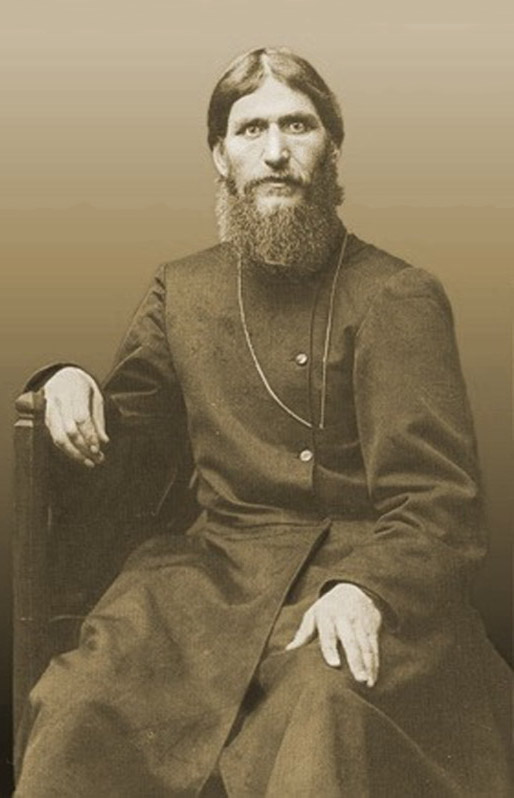Grigori Rasputin, a self-proclaimed mystic and holy man, lived a bizarre and tragic life that left an indelible mark on the late Russian Empire. Born in 1869 in a small Siberian village, Rasputin’s enigmatic aura and alleged healing abilities drew attention from the Russian aristocracy.
His journey to St. Petersburg led him to the Tsar and Tsarina, Nicholas II and Alexandra, seeking help for their hemophiliac son, Alexei. Rasputin’s supposed ability to ease the young prince’s suffering earned him favor with the royal family, but it also ignited suspicion and resentment among the nobility.
As Rasputin’s influence over the Tsarina grew, rumors swirled about their relationship. Detractors portrayed him as a corrupting influence, dubbing him the “Mad Monk” and claiming he manipulated Alexandra and wielded undue political power. The nobility’s fear of Rasputin’s hold over the royal family reached a boiling point as Russia entered World War I.
During the war, Rasputin’s unorthodox advice on military matters further incited public outrage. His detractors blamed him for Russia’s military failures and economic hardships. The public’s disdain for Rasputin intensified as stories of his wild parties and alleged affairs with women spread.
In December 1916, a group of nobles, anxious to break Rasputin’s influence, hatched a plan to kill him. They lured him to a gathering, where they poisoned him, but that didn’t seem to work. They shot him multiple times, and Rasputin finally succumbed to his injuries.
Rasputin’s death marked a pivotal moment in Russian history. Just months later, the Russian Revolution erupted, leading to the downfall of the Romanov dynasty and the rise of the Soviet Union.
Though Rasputin’s life was marked by controversy, his death was equally tragic. His legacy continues to intrigue historians, who debate the true extent of his influence and the extent of his impact on the downfall of the Russian Empire.
